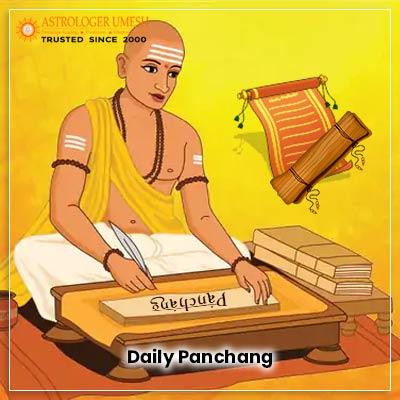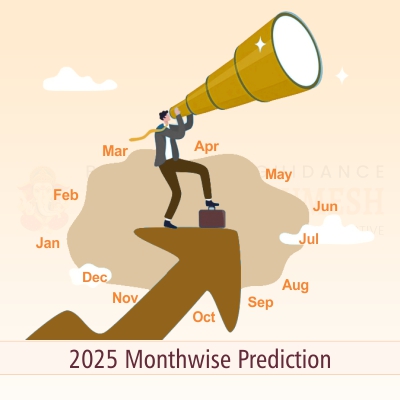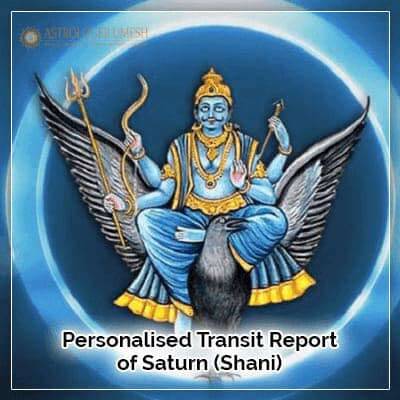About Panchang

Daily Panchang or Today Panchang is only the calendar like Gregorian Calendar. It is called an Indian Calendar. In both the calendars, difference lies in the auspicious timings what Panchang describes. In Hindu religion, everything is performed with auspicious timing to have the long lasting positive impact of that activity. This way, Hindu Panchang helps people find an auspicious Muharat or timing to perform any activity in a particular day. If followed properly, it brings forth good luck & fortune, as per the Hindu beliefs. Before we discuss Todays Panchang, let’s understand what is Panchang in general.
What is Panchang?
Panchang is comprised of two words i.e. Panch and Ang. Panch is the Sanskrit word, meaning “Five” and Ang is another Sanskrit word, which stands for Limbs. When these two words are combined, they form the meaning, the “Five Limbs”. These five Limbs are Vaar, Tithi, Nakshatra, Yog and Karan. They are considered when it comes to calculating any auspicious Muharat or timing to bring good luck and success in a person’s life. Now coming to Daily panchang, it tells about the five limbs in a particular day. Before we discuss five limbs, let’s know what is Panchang is used for.
Uses & Benefits of Panchang
Well, Daily Panchang Today is calculated on the basis of the movement of both the luminaries Sun & Moon in the sky. It depicts the importance of Panchang in daily life. The Hindu culture adopt edit thousands years ago as a medium to follow before beginning any auspicious task such as marriage, any puja, business expansion, inauguration etc.
To calculate the right time, the study of movements of Moon, Sun and other planets are done, leading to the Panchang. The Vaar in Panchang describes the Day, Tithi describes the Date, Nakshatra describes the auspicious constellation, and further Tithis or dates consist of Yog and Karan. They are used to calculate auspicious timing. They are discussed as follows –
- Daily Panchang helps people know their future and attract the positivity from the environment. Astrologers also use it for predicting events accurately.
- Today’s Panchang can help anyone get an overview of overall scenario in a particular day in advance.
- Anyone can see Today’s Panchang just to know the auspicious timing.
- Hindu festivals are also based on the Today’s Panchang or Indian Panchang.
After knowing the importance of Today’s Panchang or Panchangam, let’s discuss the five different aspects of Panchang or Panchangam.
Five Aspects of Panchang or Panchangam
1. Vaar: Vaar implies the “Day” of any week and every day. It is somehow associated with certain planet as per Vedic Astrology. Better know which planet rules which day in your life to gather insights into the impact of that day. Remember, different days are associated with different planets, as per Vedic Astrology:
- Sunday-ruled by planet Sun.
- Monday– ruled by planet Moon.
- Tuesday– ruled by planet Mars.
- Wednesday– ruled by planet Mercury.
- Thursday– ruled by planet Jupiter.
- Friday– ruled by planet Venus.
- Saturday– ruled by planet Saturn.
2. Tithi: After Vaar, the another aspect is Tithi, i.e. Date. After analyzing the good day, the Tithi or Date needs to be analyzed for auspiciousness. Tithi is determined by the Hindu Calendar. It is calculated as per the motion of planet Moon. There can be two Paksha in every month known as Shukla Paksha (Waxing Moon) and Krishna Paksha (Waning Moon). When Moon is transiting from the Sun with its increased degree, it is termed as Shukla Paksha or Waxing Moon. On the other hand, once it completes its half cycle in its complete cycle of 12 zodiac signs, it start coming towards the Sun. it is known as Waning Moon or Krishna Paksha. Get the Hindu Tithis below for your better understanding:
Tithis are categorized under five sections. Every Paksha has 15 Tithi, each including Purnima and Amavasya.
- Nanda Tithi: Nanda Tithi is for Joy and happiness Tithis that follow under this are Pratipada (1st), Shashti (6th) and Ekadashi (11th).
- BhadraTithi: Bhadra Tithi is for auspiciousness and good health. Any new work can be started during this tithi. Tithis falling under it are Dwitiya (2nd), Saptami (7th) and Dwadashi (12th).
- Jaya Tithi: This helps overcome challenges and get victory over your opponents or enemies. These tithis are Tritiya (3rd), Ashtami (8th) and Trayodashi (13th).
- Rikta Tithi: As the name suggests, Rikta means empty. Therefore, we should avoid such Tithis as they bear a sign of loss for you. These Tithis are Chaturthi (4th) Navami (9th) and Chaturdashi (14th)
- Poorna Tithi: Poorna in Hindi signifies the completion of anything. Hence, it is considered auscpiousness for initiating a work. They are Panchami (5th), Dashami (10th) and Amavasya (New Moon) or Poornima
3. Nakshatra: The third important aspect of Today’s Panchang is Nakshatra and they are generally 27 in numbers. There is another Nakshtra called Abhijit Nakshtra which is auspicious for all kind of works. As it overlaps Uttarashada and Shravan, it comes under these Nakshatra. However, at a certain point, these Nakshtras come under Abhijit or the most auspicious one. All these Nakshtras or Constellations are ruled by certain Gods. The 27 Nakshatras are divided into 12 zodiac signs. Find below the names of all 27 Nakshtras in order for your convenience:
1. Ashwini, 2. Bharani, 3. Krittika, 4. Rohin, 5. Mrigshira, 6. Ardra, 7. Punarvasu, 8. Pushya, 9. Ashlesha, 10. Magha, 11. Purva Phalguni, 12, Uttara Phalguni, 13. Hasta, 14. Chitra, 15. Swati, 16. Vishakha, 17. Anuradha, 18. Jyeshtha, 19. Mula, 20. Purva Shadha, 21. Uttarashadha, 22. Shravan, 23. Dhanishta, 24. Shatbisha, 25. Purva Bhadrapada, 26. Uttara Bhadrapada, 27. Revati
4. Yog: There are 27 Yogas, so after analysing Vaar, Tithi and Nakshtra of any day, Yog should be analyzed next. Find below the 27 Yogas with its auspiciousness or risk:
- Vishakumbha–Favorable Yog, and helps you attain wealth & property, and victory over enemies
- Preeti – Good for your personal happiness and liked by everyone. Helps you enjoy and get attracted to opposite gender
- Aayushman–Good for longevity and makes feel energetic.
- Saubhagya – Fortune-giver and grants all kinds of comforts
- Shobhana–Sensualist person and passionate about sex
- Atiganda – Danger, risk in life, accidents or problems due to difficulties
- Sukarma–One performs noble deeds, charitable and wealthy
- Dhriti–Good for entertainment, enjoys life with partner and comforts
- Shoola – Painful, argumentative, Angry
- Ganda–Related to Worrisome
- Vriddhi–Growth, Progress with Age, Intelligent
- Dhruva– Consistent and Constant with stable personality
- Vyaghaata–Cruel and hurting others
- Harshana–Delight, intelligent and cheerful
- Vajra–Thunderbolt, changeable, forceful
- Siddhi–Skilled and successful in several areas
- Vyatipaata–Unexpected mishaps and instability
- Variyaana–Love comforts & luxuries in life
- Parigha–Obstacles to progress in life
- Shiva–Benefic and gets rewarded by government and seniors
- Siddha–One can accomplish the expert level, good nature, spirituality
- Saaddhya–Full of Etiquettes and manner
- Shubha– Beneficial but problems with health, irritable
- Shukla–Impatient, Changeable mind, flighty, unreliable
- Brahma– Trustworthy, truthful, ambitious, good discernment
- Indra– Drawn more towards attaining knowledge and education, helpful
- Vaidhriti–Overwhelming mentally and physically, poor support, critical, dangerous.
5. Karn: The last or fifth aspect of Today’s Panchang is Karna, and half of tithi is termed as Karn. Generally total 11 Karnas are described and in that, four are considered fixednamely: Shakuni, Chatushpada, Naga, and Kintughna. Seven among them are movable namely: Bava, Balava, Kaulav, Taitila, Gara, Vanij and Vishti. Find below the detailed explanation for all of these Karna:
The Fixed Karnas:
- Shakuni: Person of this Karn is of calm and composed nature and perform good deeds. Its ruling deity is Garuna (Eagle) and this Karn falls on 14th day of dark moon in night.
- Chatushpada: Person will be truthful and can do independent business. Ruling deity is Vrishabha (The Bull) and falls on Amavasya or New Moon day.
- Naga: Person will become expert in chosen profession and will be good in character. Ruling deity is Naga (Serpent) and it falls on Amavasya (New Moon)
- Kitughan: Person will be intelligent but can be redirected towards bad deeds too, becomes heartless, which leads to sufferings. Ruling deity is Kubera (Wealth Lord) and falls on Shukla Paksha Pratipada or 1st day of Waxing Moon.
The Movable Karnas:
- Bava: This makes one poor but the person will be kind with what they receive in life.
- Balava: Person will be courageous, good looking handsome, interested in sports and sacrificing in nature.
- Kaulav: Person will be doing bad deeds due to his past upbringing.
- Taitila: Person will be soft-hearted with strong convictions.
- Gara: These people will be good strategists, talkative and imaginative.
- Vanij: Person finds success in everything what they choose in business. They are gifted with business acumen.
- Vishti: Person will be considered heartless with no friends and inclined towards bad deeds.
Among these movable Karnas, Vishti is considered the most inauspicious one. Hence, it’s not good to initiate any important work during its phase. Do you want to know What Is Today’s Panchangam? Consult our expert Astrologer In Delhi.

 2025
2025
 Education
Education
 Finance
Finance
 Love
Love
 Marriage
Marriage
 Career
Career
 Personal
Personal
 Remedies
Remedies
 Ask
Ask
 Offers
Offers
































